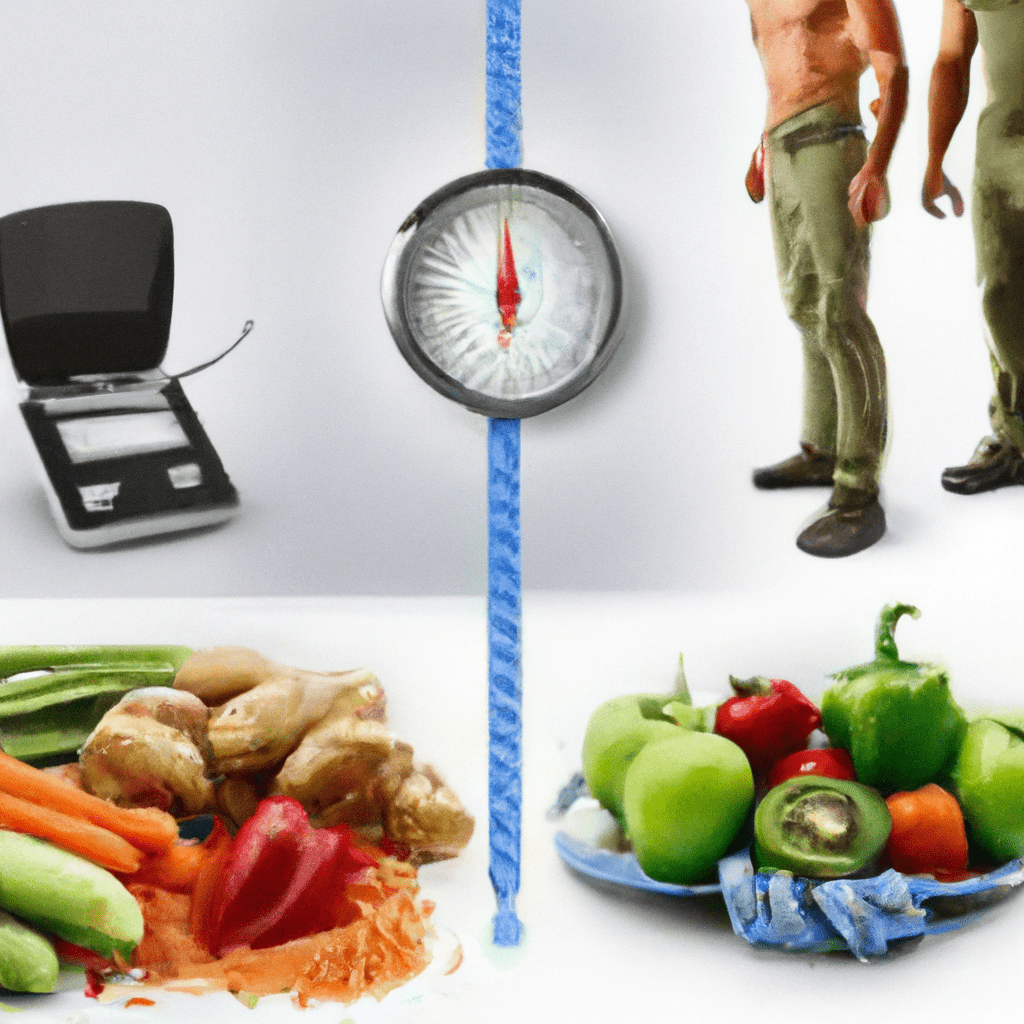

Have you ever wondered about the secret behind the Military Diet and its effectiveness for weight loss? We’re here to uncover the truth and shed some light on this popular diet plan that has taken the fitness world by storm. In this article, we’ll explore the basics of the Military Diet, its benefits, and whether it’s the right fit for you. So, let’s embark on this informative journey and discover the ins and outs of the Military Diet for weight loss.
What Is Military Diet For Weight Loss
Overview of the Military Diet


The Military Diet is a weight loss plan that claims to help individuals lose up to 10 pounds in just one week. It is a strict and structured diet that involves a three-day meal plan followed by four days of less-restricted eating. The diet restricts daily calorie intake to around 1,000-1,400 calories, significantly lower than the average caloric intake of most individuals.
Origins of the Military Diet
Although the exact origins of the Military Diet are unclear, it is rumored to have been developed by nutritionists and fitness experts for the military personnel to help them lose weight quickly and efficiently.
However, it is important to note that the Military Diet is not officially endorsed or associated with any branch of the military.
Key Principles of the Military Diet
The Military Diet follows a few key principles that are crucial for its success. These principles include:
-
Caloric Restriction: The diet relies on significantly reducing calorie intake, typically to around 1,000-1,400 calories per day. This low-calorie approach aims to create a calorie deficit, which forces the body to burn stored fat for energy.
-
Meal Plan Structure: The diet follows a unique three-day meal plan, which is repeated for three consecutive days, followed by four days of less-restricted eating. This alternating pattern helps prevent the body from going into starvation mode while still promoting weight loss.
-
Specific Food Combinations: The Military Diet emphasizes specific food combinations in each meal, with a focus on lean proteins, fruits, vegetables, and whole grains. These combinations are designed to provide essential nutrients while keeping calorie intake low.
Preparation and Planning


Before embarking on the Military Diet, it is essential to make adequate preparations and create a meal plan. Here are some tips for preparation and planning:
-
Consult a Healthcare Professional: It is always advisable to consult a healthcare professional or a registered dietitian before starting any new diet. They can provide personalized advice based on your specific health needs and goals.
-
Stock Up on the Right Foods: Ensure that your pantry is filled with the necessary foods for the Military Diet. This includes lean proteins, such as chicken, fish, and tofu, as well as fruits, vegetables, and whole grains.
-
Create a Schedule: Plan your meals and snacks in advance to avoid impulsive food choices. Having a well-structured meal plan helps facilitate adherence to the Military Diet.
Sample Meal Plan
Here is a sample meal plan for the three-day cycle of the Military Diet:
Day 1
- Breakfast: Half a grapefruit, a slice of toast with two tablespoons of peanut butter, and a cup of coffee or tea.
- Lunch: Half a cup of tuna, a slice of toast, and a cup of coffee or tea.
- Dinner: A 3-ounce serving of any lean protein (such as chicken or tofu), a cup of green beans, half a banana, and a small apple.
- Snacks: A few carrot sticks and a small cup of vanilla ice cream.
Day 2
- Breakfast: A slice of toast, one hard-boiled egg, and a banana.
- Lunch: A cup of cottage cheese, a hard-boiled egg, and five saltine crackers.
- Dinner: Two hot dogs (without buns), half a cup of carrots, half a cup of broccoli, half a banana, and half a cup of vanilla ice cream.
- Snacks: A few grape tomatoes and a small cup of vanilla ice cream.
Day 3
- Breakfast: Five saltine crackers, a slice of cheddar cheese, and a small apple.
- Lunch: A hard-boiled egg, a slice of toast, and a cup of coffee or tea.
- Dinner: A 3-ounce serving of any lean protein (such as chicken or tofu), a cup of green beans, half a banana, and a small apple.
- Snacks: A few celery sticks and a small cup of vanilla ice cream.
Benefits of the Military Diet


The Military Diet offers several potential benefits for individuals looking to lose weight quickly. These benefits include:
-
Rapid Weight Loss: Following the strict calorie restrictions of the Military Diet can lead to rapid weight loss. The reduced caloric intake forces the body to tap into its fat stores for energy, promoting weight loss in a short period.
-
Simple and Structured: The Military Diet is a straightforward and structured plan that tells individuals exactly what to eat for three days. This simplicity can be appealing to those who prefer a clear-cut diet plan.
-
Budget-Friendly: The Military Diet focuses on basic and affordable foods, making it a cost-effective option for individuals on a tight budget. The diet does not require expensive supplements or specialized foods.
Potential Risks and Concerns
While the Military Diet may offer rapid weight loss, it is essential to consider the potential risks and concerns associated with it. These include:
-
Nutrient Deficiencies: Due to the diet’s restrictive nature, there is a risk of nutrient deficiencies, particularly during the three-day cycle. It is recommended to consult a healthcare professional or a registered dietitian to ensure proper nutrient intake.
-
Unsustainability: The Military Diet is not a long-term solution for weight loss. Its strictness and limited food choices may make it challenging to adhere to in the long run. Once the four days of less-restricted eating are over, individuals may struggle to maintain their weight loss or develop healthy eating habits.
-
Lack of Scientific Backing: The Military Diet lacks substantial scientific evidence to support its effectiveness. Most of the weight loss achieved during the three-day cycle is likely due to water loss rather than fat loss.
Effectiveness of the Military Diet


The effectiveness of the Military Diet for weight loss varies among individuals. While some may experience significant weight loss, others may not see the same results.
Factors such as metabolism, activity level, and overall health play a crucial role in determining individual outcomes.
It is important to note that sustainable weight loss involves a combination of healthy eating habits, regular physical activity, and a balanced lifestyle rather than relying solely on a specific diet plan.
Comparison with Other Popular Diets
When comparing the Military Diet with other popular weight loss diets, such as the ketogenic diet, intermittent fasting, or the Mediterranean diet, each has its own unique approach and benefits.
While the Military Diet focuses on strict calorie restriction and specific food combinations, the ketogenic diet relies on a high-fat, low-carb intake to induce ketosis. Intermittent fasting involves cycling periods of eating and fasting, while the Mediterranean diet emphasizes whole, unprocessed foods and healthy fats.
It is essential to choose a weight loss plan that aligns with individual preferences, lifestyle, and long-term goals.
Tips for Success on the Military Diet


For those considering embarking on the Military Diet, here are some tips to enhance success:
-
Stay Hydrated: Drinking plenty of water throughout the day helps to keep you hydrated and can help reduce hunger pangs.
-
Focus on High-Fiber Foods: Incorporating high-fiber foods, such as fruits, vegetables, and whole grains, can help promote satiety and improve digestion.
-
Practice Portion Control: While the Military Diet already outlines specific portion sizes, it is essential to pay close attention to them to maximize the benefits of calorie restriction.
-
Incorporate Physical Activity: Engaging in regular physical activity, such as brisk walking or strength training, can enhance overall weight loss and contribute to improved health.
-
Avoid Highly Processed Foods: While the Military Diet allows some indulgences, it is still advisable to limit highly processed and sugary foods for optimal results.
By following these tips and maintaining a balanced approach to health and weight loss, individuals can enhance their chances of success on the Military Diet or any other weight loss plan they choose to pursue.







